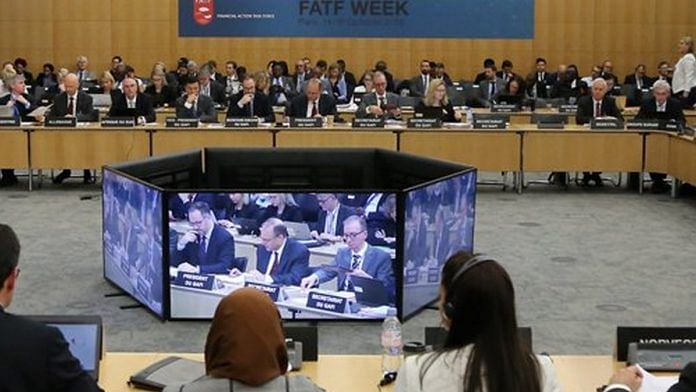Mumbai: When India comes up for its next Financial Action Task Force (FATF) assessment in a few months, a number of issues could prove to be a headache for Indian authorities.
India saw a spate of alleged financial sector frauds in the last few years by the lenders — from Yes Bank to IL&FS to Dewan Housing Finance. These are currently under investigation by the Enforcement Directorate (ED) for violation of anti-money laundering norms.
In all these cases, the alleged frauds were committed by the top officials of the institutions — chief executive officers and managing directors, and in the case of Yes Bank, the co-founder, who was granted the bank license.
Moreover, regulatory lacunas, and questions over the 2016 demonetisation exercise and crackdown on shell companies could also prove a sticking point when the global money laundering and terrorist financing watchdog assesses India.
The country assessment for India, which was scheduled in October, has now been postponed due to the Covid-19 pandemic and is likely to start early next year.
The last assessment was conducted in June 2010.
Regulatory issues
According to officials involved with the FATF discussions, one of the regulatory gaps is that India’s anti-money laundering rules do not talk about monitoring Politically Exposed Persons, or PEPs, as there is no mention of PEPs in the Prevention of Money Laundering Act (PMLA).
FATF recommendations require monitoring both domestic and foreign PEPS.
Domestic PEPs are individuals who are or have been entrusted domestically with prominent public functions — heads of governments; senior politicians, government, judicial and military officers; senior executives of state-owned corporations; important political party functionaries, etc. Foreign PEPs are individuals who are, or have been, entrusted with prominent public functions by a foreign country.
Also read: Singapore, Hong Kong top destinations for dodgy money transactions, followed by China, India
Demonetisation and shell companies question
The officials said the 2016 demonetisation exercise is going to be another issue which could be discussed during the assessment.
Indian authorities will need to explain the motive behind the move and how far the objectives have been achieved.
While announcing the move to withdraw 86 per cent of the currency out of circulation, Prime Minister Narendra Modi had said one of the objectives was to curb black money.
The other issue that the country needs to provide clarification on is the government’s move to crack down on shell companies, sources said. While over 6 lakhs entities were closed down, there were many firms that were active but closed down as they had not filed returns.
Shell companies are those entities which are not engaged with any economic activity, mainly formed for tax evasion or money laundering.
The officials said a country which is aspiring to become a $5 trillion economy should not get tangled in FATF assessment and all the deficiencies should be taken care of to ensure the country gets a reasonable assessment as testimony to its effort of preventing money laundering and terror financing.
India has set up a joint working group comprising 22 central investigation, intelligence gathering and regulatory agencies like Central Bureau of Investigation, ED, Financial Intelligence Unit, Reserve Bank of India, Securities and Exchange Board of India, among others, to make presentations and brief the FATF experts, said the officials.
Also read: Who will buy Mistry’s 18% stake in Tata Sons could be the next big fight
India review
In 2013, FATF had observed that India had made significant progress in addressing deficiencies identified in its mutual evaluation report and it was decided that India should be removed from the regular follow-up process.
The countries that are deficient in having norms to tackle such activities are categorised in grey and black lists. For example, Pakistan and Mauritius are in the grey list while Iran and North Korea are blacklisted.
According to the officials, the last round of assessment was more to make sure the country’s laws are in place to prevent money laundering and terror financing.
This time, the FATF will not only examine whether the Indian framework for prevention of money laundering is up to the date and aligned with FATF prescriptions, but also whether it is implemented in letter and spirit.
What is FATF?
The inter-governmental body, which was established in 1989, is mandated to set standards and promote effective implementation of legal, regulatory and operational measures for combating money laundering, terrorist financing, and other related threats to the integrity of the international financial system.
Over 200 countries and jurisdictions are committed to implementing the FATF recommendations, which ensure a coordinated global response to prevent organised crime, corruption and terrorism.
The FATF also works to stop funding for weapons of mass destruction.
In its country assessment, FATF evaluates whether the country’s rules and regulations are in accordance with international norms and how effective are those in preventing activities like money laundering and terror financing.
Also read: China share in India imports up 5% points in April-July over last year, despite overall decline



